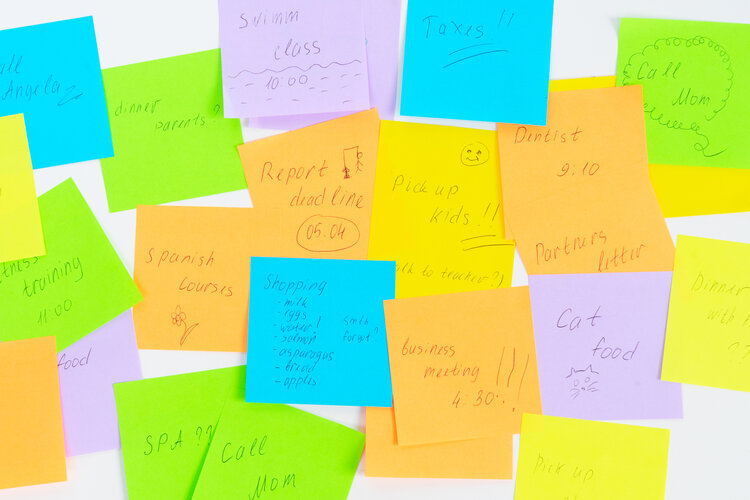
If you or your partner has ADHD, you may be experiencing an extra layer of challenge. With 8.1% of American adults diagnosed with ADHD, it’s no surprise that relationships can take a hit. Whether you are the person with ADHD or love someone who has the diagnosis, ADHD affects you both in profound, understandable, and treatable ways.
ADHD is a brain difference that makes it difficult to remember important details or tasks, get and stay organized, manage time, maintain focus, and follow through fully. While people experience different symptoms, intense feelings, and reactions are a common thread for many. These symptoms impact not only the person with ADHD but also the person who loves them.
While some claim that ADHD is overdiagnosed in children, it is widely assumed to be underdiagnosed in adults. Diagnosis of this common disorder has been refined a lot since we were kids, so many of us adults were never diagnosed as children. That means that adults with undiagnosed ADHD are struggling with its symptoms – and have their whole lives – but don’t know any different. So they assume this is just how life (and love) go for them.
This painful reality means that having ADHD (whether you know it or not) – or loving someone who has it – can leave you feeling entirely helpless. The combination of resentment from the non-ADHD partner and shame in the person with ADHD can (understandably) result in fearing your relationship is beyond repair.
It can be overwhelming to know where to start when the symptoms of ADHD are present in your relationship. The good news is that plenty can be done to help shift you out of your well-worn patterns of hurt and frustration together. And it begins with awareness of how ADHD affects your relationship.
Common Patterns in Relationships with ADHD
Think about ADHD as a house on fire. One of you is stuck inside it. There is smoke everywhere, and it’s hard to see what’s in front of you – or find your way out (despite wanting to). Your partner is circling round the house with hoses and sirens. Both of you are fatigued, at times, even desperate. One of you carries the ADHD around internally and has to deal with it every moment, the other lives in reaction to ADHD. It’s not always apparent to the person with the hose that their partner may be struggling and is doing their best.
Naming ADHD for what it is (a common challenge that you’re both navigating) will help normalize your dilemma and realign you as a team with a common goal. Remember, ADHD affects both of you and leads to predictable patterns.
If you’re a person with ADHD, it is common to feel anxious and worried about missing things. To be hurt for being criticized by your partner about what you do or how you do it. To experience irritation about being continuously nagged to get things done, and generally not accepted for who you are. Many people feel like a child to their non-ADHD partner’s “parenting.”
If you’re the non-ADHD partner, you likely feel hurt and let down that your partner forgets things that are important to you or that you have discussed. You are often overwhelmed by the amount of work left on your plate that you can’t count on your partner to reliably help you with. You may also be prone to become irritated by your partner’s intense emotions that seem to come out of nowhere. Feeling frustrated that the same patterns keep repeating themselves.
ADHD is a perpetual difference
Consider that being a couple navigating the symptoms of ADHD is simply one of the differences between you. John Gottman has found that there are really only two kinds of problems in relationships – those that are solvable and those that are perpetual. Perpetual differences, as they sound, are likely never to go away. They’re the repeated fights that leave you feeling stuck in gridlock – same argument different day.
The good news is – ALL couples have perpetual differences. Every single one. The difference between happy and seemingly harmonious couples and those that are gridlocked and resentful is this: happy couples talk about their perpetual differences – even laugh about them. They focus on attunement and stay away from the 4 Horsemen (more on that in a moment). They prioritize repairing quickly when things go array.
For you, ADHD is your perpetual difference. It doesn’t have to sink you, but you do have to bring your most skillful self to the table to talk about your hurts and frustrations so that your partner can truly hear you and not feel attacked. And, even with your best skills, your partner may become defensive and upset. This is when couples therapy with a therapist who understands ADHD in relationships is a loving choice to support you in mutually refining your approach to difficult conversations.
Navigating perpetual differences requires a lot of patience and reaching for deep understanding. This understanding works both ways – how does having ADHD affect your partner? What are their struggles and strengths that come from ADHD? On the other hand, how does your ADHD affect your partner? How are they likely to react when your ADHD impacts them?

Fighting for win/win: Gottman’s 4 Horsemen
One of the hardest skills to master in relationships is steering clear of what John Gottman calls the 4 Horsemen of the Apocalypse. As dramatic as it sounds, the 4 Horsemen are just a set of behaviors (that all couples display), including criticism, defensiveness, contempt, and stonewalling. When left unchecked, Gottman’s research links them to disconnection and marital demise. Learning to recognize which four horsemen dominate in your conflicts will afford you clues to the anecdotes for treating the intensity of gridlock you’re stuck in.
Frequently, one common conflict cycle in ADHD couples looks like this: the ADHD partner forgets to do something which leads the Non-ADHD partner to be critical of the ADHD partner, who, in turn, responds with defensiveness.
This dynamic can escalate, leaving both of you feeling misunderstood and not heard, and it breeds contempt. Contempt is the most damaging of the 4 Horsemen and the most insidious. At its core is a belief (often held internally) that your partner is more at fault, or fundamentally more flawed than you are. Sulphuric acid for love and insidious in its nature, contempt, over time, breeds resentment, and a higher likelihood of divorce.
Finally, as fights escalate and one of you gets really angry, the other begins to stonewall. A person who is stonewalling is shut down, shutting their partner and the argument out of their mind. They may even leave the room mid-argument. The need to manage physiological overwhelm is understandable and real. Unfortunately, it often terrifies or infuriates the person on the receiving end. It never contributes to repair or moving forward. Long term, it erodes at trust.
ADHD couples need to practice the antidotes to the 4 Horsemen to shift away from some of the tension: instead of criticizing, complain from a regulated place; instead of responding defensively, find something in what your partner is saying that you can genuinely take responsibility for and validate them; instead of resorting to contempt, create a relational culture of fondness and admiration; and as an alternative to stonewalling, learn and practice tools for self-regulation in the service of increasing your window of tolerance for hanging out with the tough stuff.
Gottman’s research confirms the most important rule for successful conflict is to remember that you are fighting for win/win. If you aim for win/lose (I have to win this argument, you are wrong, and I am right) – the relationship will lose. Using the antidotes to the 4 horsemen will set you on the right path.
Restoring Trust
Untreated ADHD in relationships often leads to ruptured trust. Trust is built from attunement, follow-through, respect, and responsiveness. If you have ADHD, each of these brings its challenges. For example, distractibility can make it challenging to hear your partner and follow through on agreements. Emotional swings and sensitivity can lead to saying hurtful things or not understanding the meaning behind your partner’s complaints – their needs. Regardless of good intentions, follow-through can be difficult when impulsivity or time management issues result in impulsively changing focus.
Shame often lurks just below the surface in people with ADHD. Deep, painful feelings of “I am bad, defective, worthless” may remain unspoken and run rampant internally. Inherent in shame is a fear of disconnection, and so, we hide. The tricky thing about shame is that when it is not spoken and shared, it grows.
Bringing your shame to the light in your relationship is a first step to restoring trust. This means talking about your experience with ADHD and shame with your partner. It will help your non-ADHD partner to understand what you are contending with – they likely don’t know the depth of how challenging every day can be for you. Equally important is hearing them out – delicately avoiding becoming defensive for how your ADHD affects them so that you can understand their side of the experience. Bringing self-compassion and empathy to the table will go far.
Navigating love and ADHD is anything but easy. By using the abundant tools and resources available, including couples therapy, if needed, you’ll experience the gains from your efforts. Increased intimacy, diminished heartache, and in time, a relationship that not only endures but thrives.
